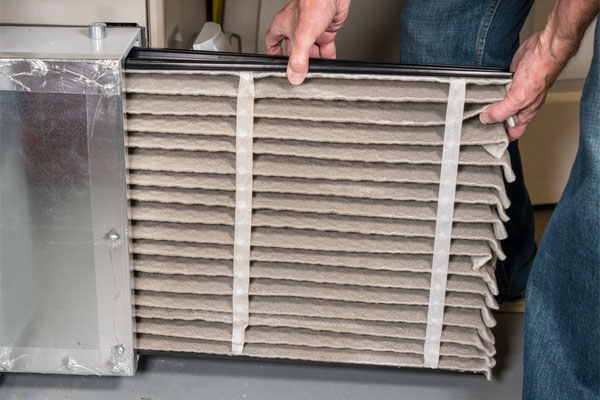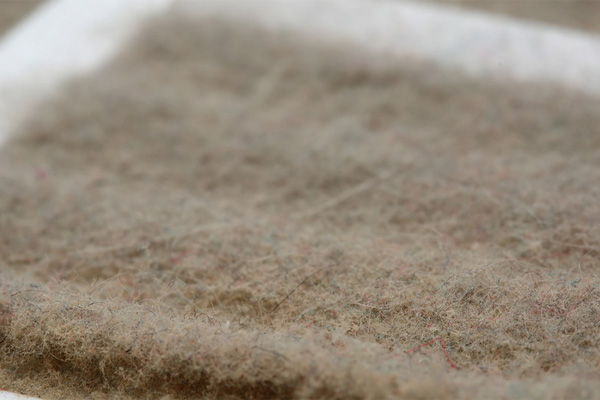FAQ About IAQ: Answers To Your Indoor Air Quality Questions

One of the most neglected issues in homes and buildings is indoor air quality. IAQ refers to the condition of the air inside and around a building. The quality of indoor air is critical because it affects the health and safety of the people inside the building. Bad air quality, eventually, will increase the risk of developing respiratory problems and allergies in certain individuals. Therefore, being aware of the quality of the indoor air in your home or office is imperative and should not be ignored.
Common Indoor Air Quality FAQs
Contents
- 1 Common Indoor Air Quality FAQs
- 1.1 Why Is Indoor Air Quality Important In My Home?
- 1.2 How Do Indoor Air Pollutants Find Their Way Into My Home?
- 1.3 What Are The Most Dangerous Pollutants That Affect Indoor Air Quality?
- 1.4 Where Are Air Pollutants Frequently Found?
- 1.5 Can’t My HVAC System’s Filters Get Rid Of The Pollutants?
- 1.6 What Types Of HVAC Air Filters Should I Use?
- 1.7 How Often Do I Have To Change My Air Filter?
- 1.8 Aside From HVAC Air Filters, Are There Products I Can Use To Improve Indoor Air Quality?
- 1.9 Can I Use Household Plants To Help Improve Indoor Air Quality?
- 1.10 Conclusion
- 2 Call McAllister Energy For Effective Indoor Quality Solutions
To fully understand the importance of indoor air quality, here are 9 indoor air quality FAQs.
Why Is Indoor Air Quality Important In My Home?

Most homes and buildings are enclosed spaces,. Windows and doors are often kept closed and any gaps or cracks are sealed off. This is often to accommodate an existing HVAC system. However, enclosed spaces can also trap air pollutants such as dust, pollen, viruses, mold spores, chemical fumes, and pet dander inside the structure. While this can be remedied by opening windows periodically, this is not always practical. Prolonged exposure to pollutants can increase the risk of developing respiratory problems and contact allergies, particularly among sensitive individuals.
How Do Indoor Air Pollutants Find Their Way Into My Home?
Pollutants that affect indoor air quality often consist of tiny particles. Some, such as dust, come from building materials such as wood, insulation, fabric, or wallboard. Humans also slough off dead skin cells regularly, which combines with other dust particles. Some pollutants come from animal dander – scales from skin, hair, or feathers, that indoor pets produce. Some, such as pollen, may come from outdoors, brought in by the wind or carried inside by humans and pets. Pollutants may also exist indoors from various sources, including viruses and bacteria.
What Are The Most Dangerous Pollutants That Affect Indoor Air Quality?
The types of pollutants that you should worry about are often chemical substances. These may include carbon monoxide, asbestos (usually present in older homes), lead particles, and radon. Some organic pollutants such as mold can cause serious health issues if inhaled or ingested.
Where Are Air Pollutants Frequently Found?
Pollutants are likely present in the air around you. They are so prevalent and common that it is impossible to completely eliminate them. They may also be present or encouraged by certain conditions, such as moisture indoors. Conditions inside the home may also encourage pollutants. These conditions include the state of the environment in the bathroom, kitchen, dirty appliances, carpets, furniture, and basements.
Can’t My HVAC System’s Filters Get Rid Of The Pollutants?

If your HVAC equipment has a reliable filtration system, it will be able to eliminate much of the pollutants found indoors. That is, as long as the system is maintained regularly and the filters are replaced periodically.
What Types Of HVAC Air Filters Should I Use?
Some of the most common types of HVAC air filters currently available include ionizers, HEPA (High-Efficiency Particulate Air), UV filters, and activated carbon filters. Ionizers work by electrically charging the molecules in the air, using ions to eliminate particulates and microbes. HEPA filters are popular because they can trap as much as 99.97% of particulates that are as small as 0.3 microns. UV filters expose microorganisms to ultraviolet rays which are fatal to them. Activated carbon filters attract particulates through adsorption, hence removing them from indoor air.
How Often Do I Have To Change My Air Filter?
Certain factors come into play when it comes to changing or replacing your air filters. These include the type of filter you have, the size/area of your house or building, the level of pollution indoors, and the presence of pets. In general, air filters should be replaced or cleaned every 30 to 60 days. High-quality filters, on the other hand, will likely last for as long as 90 days before they need to be replaced. However, every home is different. Therefore, it is best to check your HVAC air filter on a monthly basis and replace it if necessary.
Aside From HVAC Air Filters, Are There Products I Can Use To Improve Indoor Air Quality?

There are several indoor air quality products you can use but the efficacy will depend on the type of pollutants that are present in your home or building. To combat the presence of mold, mildew, and other microorganisms, a UV lamp can help kill any possible pathogens to prevent illnesses and allergies. If the problem is the presence of particulates such as dust, pollen, and pet dander, or if your indoor space is exposed to chemical fumes, consider using an air purifier. Talk to an HVAC contractor to find the most effective indoor air quality solutions for your home.
Can I Use Household Plants To Help Improve Indoor Air Quality?
Absolutely. Certain plants, such as spider plants, Devil’s ivy, date palm, philodendron, chrysanthemum, Boston fern, and peace lily are known to help absorb toxic substances from the air. They also help regulate humidity levels, aside from providing a nice aesthetic touch for your indoor space. However, plants can only do so much. In severely polluted indoor areas or where no mechanical/electrical equipment is in place to effectively eliminate pollutants, the presence of plants may not be enough. It is better to combine the use of plants with good air filtration or purifying system to ensure safe, healthy air indoors.
Conclusion
Indoor air quality is actually fairly easy to achieve and maintain with regular cleanup and HVAC maintenance. There are also certain types of equipment that can help control the number of pollutants that are found indoors. If you are worried about indoor air quality, talk to your local HVAC contractor about the steps you can take and the equipment you can install to keep your home environment safe and comfortable.
Call McAllister Energy For Effective Indoor Quality Solutions
 McAllister Energy offers superior heating and cooling services in Camden County, New Jersey. We hire the best-certified technicians who can provide you with excellent HVAC tune-ups, repairs, installations, and replacements. Each of our techs has the knowledge and experience to service your HVAC system correctly. We can provide you with practical solutions to improve your air quality, increase efficiency, and enhance your comfort.
McAllister Energy offers superior heating and cooling services in Camden County, New Jersey. We hire the best-certified technicians who can provide you with excellent HVAC tune-ups, repairs, installations, and replacements. Each of our techs has the knowledge and experience to service your HVAC system correctly. We can provide you with practical solutions to improve your air quality, increase efficiency, and enhance your comfort.
McAllister Energy guarantees the most competitive heating and cooling service costs in the area. Our maintenance services can prolong your HVAC system’s lifespan and reduce your home heating and cooling costs. If you happen to need an HVAC repair or replacement system, we can recommend the best one for your home while staying within your budget. We back all of our work with a guarantee to ensure your satisfaction. To schedule a service appointment, give McAllister Energy a call today. We offer free, in-home estimates.
You can click here to contact us now or call us at (856) 665-4545 to find out more!